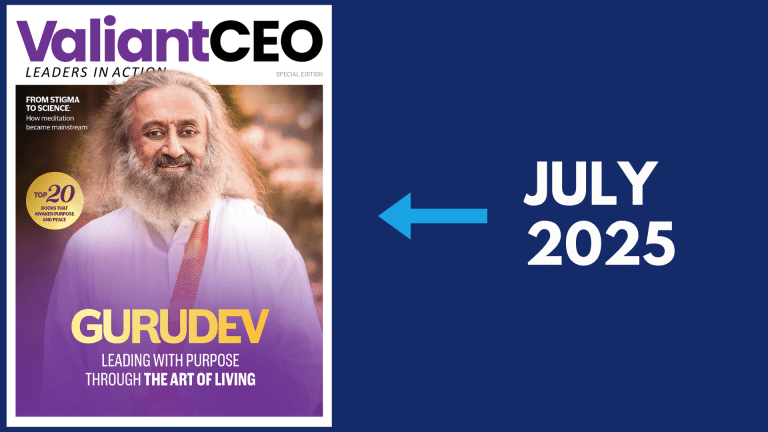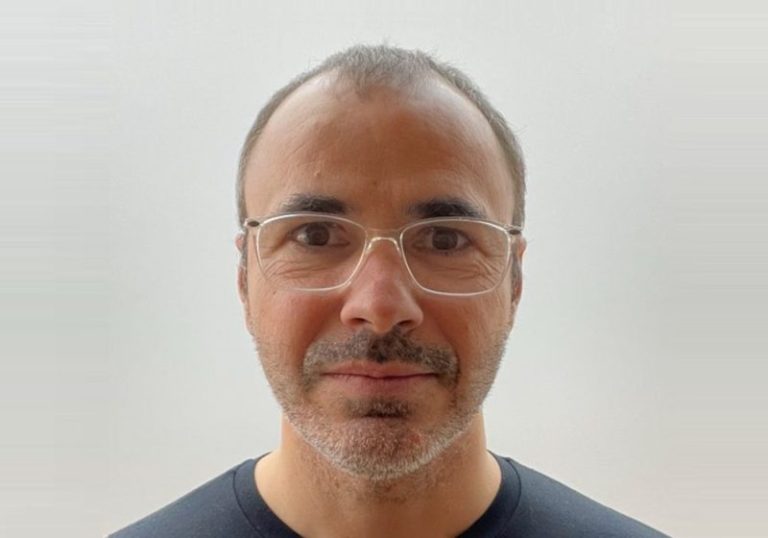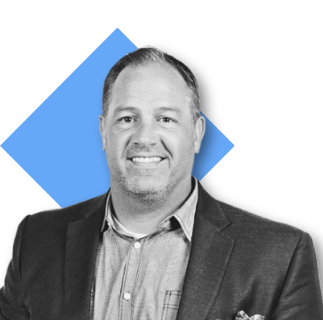Cosmin Ene is a digital monetization strategist and entrepreneur focused on building future-ready models for digital content, AI services, and SaaS access. He is a frequent voice on the intersection of user choice, platform sustainability, and transactional media, advocating for systems that align value with usage, not friction. As the creator of one of the first microtransaction-based platforms to scale across digital ecosystems, Cosmin’s work brings a systems-level view to product design and revenue architecture, shaped by global experience across media, tech, and digital infrastructure. His approach challenges legacy business models and helps platforms prepare for a more dynamic, user-aligned economy.
Company: Supertab
We are thrilled to have you join us today, welcome to ValiantCEO Magazine’s exclusive interview! Let’s start off with a little introduction. Tell our readers a bit about yourself and your company.
Cosmin Ene: I’m Cosmin Ene, Founder and CEO of Supertab. I’m a digital monetization strategist focused on building systems that align value with usage, not friction. Over the years, I’ve worked across media, tech, and content infrastructure to create models that reflect how people actually engage online – sporadically, curiously, and on their own terms.
Supertab is a frictionless monetization layer for digital platforms. It lets users open a running tab for content or features and only pay when the value adds up – no subscriptions, no upfront lock-ins. Whether it’s a GenAI tool, a wellness app, or a news article behind a paywall, Supertab turns “maybe later” into revenue.
We’re also giving publishers new ways to defend their work. With AI scraping on the rise, creators are losing control and compensation. Supertab helps them protect content access and monetize it cleanly. And because we integrate directly with tools like Google Ad Manager’s Offerwall, onboarding is seamless – no overhaul required.
Supertab is building the infrastructure to let agents, and people, transact on a micropayment level, with a clear path from one-time purchases to full subscriptions.
As AI technology evolves, we believe business models must evolve with it. That’s why Supertab offers a native monetization layer for the agentic web, enabling transactions between agents, services, and platforms in real time: per API call, per session, per task, or even per token.
We’ve built the aggregation engine, escrow logic, and payment rails to support agent-to-agent billing at scale, without requiring wallets, upfront payments, or subscriptions. Already integrated with Google Ad Manager, Supertab helps developers, platforms, and models monetize access and deliver value in a way that’s seamless, dynamic, and built for how AI actually works.
If you were in an elevator with Warren Buffett, how would you describe your company, your services or products? What makes your company different from others? What is your company’s biggest strength?
Cosmin Ene: I’d say: “Supertab is built on a simple idea: people want to try before they commit. Imagine walking into a sushi bar – no one asks you to pay $100 up front. You pick what looks good, eat what you like, and pay at the end. That’s how the internet should work. Supertab gives people seamless, one-click access to premium digital content or services without prepaying or subscribing. It’s a running tab for the web, and when that tab hits $5, you pay. That’s it.”
I’d throw in that what makes us different is that we’re aligning monetization with how people actually behave, not how companies wish they did. We’re not chasing ideal funnels, we’re meeting users in the moment. We’re also giving publishers and platforms a powerful new tool to fight AI scraping, reclaim their revenue, and finally earn from casual users, not just loyal ones.”
Our biggest strength is that we turn friction into flow. No logins. No pre-commitments. Just clean access, built for the way people already use the web.”
Quiet quitting, The Great Resignation, is an ongoing trend causing many businesses to struggle to keep talent engaged and motivated. Most are leaving because of their boss or their company culture. 82% of people feel unheard, undervalued, and misunderstood in the workplace. In your experience, what keeps employees happy? And how are you adapting to the current shift we see?
Cosmin Ene: People want to be trusted and they want to be heard. That’s not a revolutionary insight, but actually living it every day takes real intention. At Supertab, we focus on creating an environment where people have clear goals, honest feedback, and real flexibility.
One way we do this is through what we call intent-based leadership, adapted from David Marquet’s model in Turn the Ship Around!. The principle is simple: the people closest to the information are best placed to make decisions. So instead of my team giving me a list of options and waiting for me to decide, they state their intent – what they believe is the right course of action – and explain the rationale behind it. My role shifts from being the decision-maker to being a coach: I can support their decision, or challenge their rationale based on my experience. This moves us from a culture of permission and output to one of ownership and outcomes, and it empowers everyone to act like a leader.
And of course, listening isn’t just a slogan. A lot of companies say it, but you have to show up, be transparent, be human, and create trust. That’s what builds loyalty, not perks. Finally, working on something with real-world impact, like helping content creators get paid fairly, also makes a difference. When the mission matters, people stay.
Online business keeps on surging higher than ever, B2B, B2C, online shopping, virtual meetings, remote work, Zoom medical consultations, what are your expectations for the year to come and how are you capitalizing on the tidal wave?
Cosmin Ene: We’re seeing online businesses expand in every direction: B2B, B2C, e-commerce, remote work, even healthcare. But the real story isn’t just volume, it’s behavior.
Users are changing. They’re tired of rigid paywalls and default subscriptions. They don’t want to commit before they’ve experienced value. That’s what people call ‘subscription fatigue,’ but I see it as something bigger: a new digital mindset. I call these people Subscription Nomads. 30% of people cancel their subscription on the day they sign up for it so they don’t forget to cancel at the end of the trial period. They move quickly between services, diving deep when something matters to them, then moving on. They don’t want to subscribe to everything—they want access that matches their pace and purpose.
This year, I expect that behavior to accelerate. Content providers that don’t adapt risk becoming ghost towns, because users expect immediacy, flexibility, and an easy exit if something isn’t working.
That’s exactly where Supertab comes in. We’re building the infrastructure that allows platforms to meet users where they are—through frictionless access and micropayments. Whether it’s a GenAI tool, a news site, or a wellbeing app, we help platforms capture value without forcing users into outdated models.
In short, the tidal wave is here—but it’s not just about growth, it’s about how users want to engage. Companies that listen and adapt will ride it; those that don’t will be left behind. Five years from now, if you’re not ruthlessly user-focused, you’re gone.
Business is all about overcoming obstacles and creating opportunities for growth. What do you see as THE real challenge right now?
Cosmin Ene: The real challenge right now is two-sided: adapting to what users want while finding sustainable ways to monetize the content that fuels the entire ecosystem.
On the B2C side, people want flexible access. They don’t want to be locked into subscriptions or trapped behind hard paywalls. But on the other end, creators and publishers are being hit hard. Their content is being scraped by AI tools, often repurposed without credit, which strips them of traffic and revenue. Their defense is to lock things down even further. But that’s the exact opposite of what today’s audience wants. So you’ve got this growing tension: protect your content, or make it accessible? It shouldn’t be a binary choice. What we need is a rethink of how we assign value, how we price it, and how we make it accessible to people.
On the macro level, the real challenge is value capture in the age of AI. Before, ads paid the bills: platforms sold attention and shared the proceeds. But with AI, every interaction costs money, and ads alone can’t cover it. People don’t search as much anymore; they find. That leaves little surface to show ads, and one impression isn’t enough to cover costs, let alone create healthy margins. Subscriptions aren’t the answer either as 98% of users won’t subscribe.
So the core challenge is this: in a world where both ads and subs fall short, how do we capture value in a way that works for users and for creators? That’s the frontier we’re standing on right now.
In your experience, what tends to be the most underestimated part of running a company? Can you share an example?
Cosmin Ene: It’s the emotional load. The interpersonal stuff. The part you don’t see in pitch decks or press releases. You’re not just building products, you’re holding a vision, keeping the team aligned, dealing with doubt, managing momentum. And doing it over and over again. It’s not a big break and everyone is set, it’s a marathon of constant intention, hard work and commitment.
Micropayments aren’t exactly mainstream yet. We’re operating in a space that still gets skeptical looks. That means we aren’t just pitching a product, we’re pushing a new way of thinking. And that takes real stamina. Long days, a lot of repetition, a lot of no’s before you get to yes.
The example that always hits home is the early days, trying to convince people that users would actually pay small amounts for content if you removed friction. That went against everything the market was built on at the time. But I believed in it, and the people around me did too. That kind of conviction, that’s what doesn’t get talked about enough. Battling doubt and still persevering even when others think your idea isn’t worth it.
On a lighter note, if you had the ability to pick any business superpower, what would it be and how would you put it into practice?
Cosmin Ene: I’d want to understand what people are really thinking. What’s underneath the pitch, the posture, the surface. Not in a manipulative way, but so I could meet people where they actually are.
That would change everything. You’d know how to lead better, design better, even argue better. Most conflict in business and life comes from not knowing what someone’s really trying to say. If I could close that gap faster, it’d save time and probably a few gray hairs.






